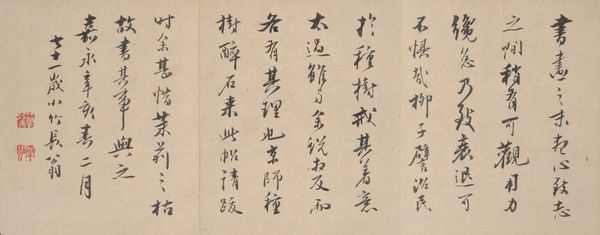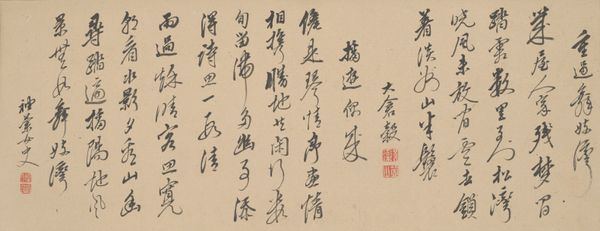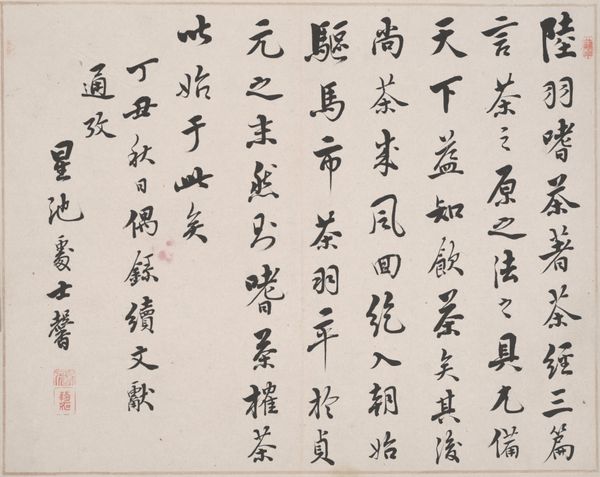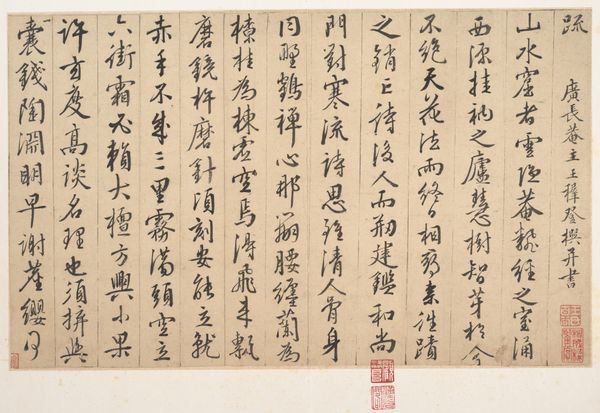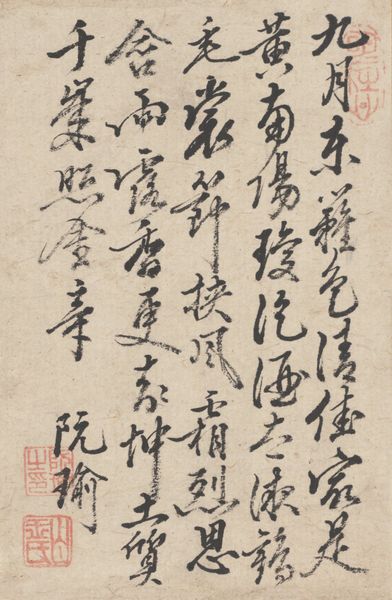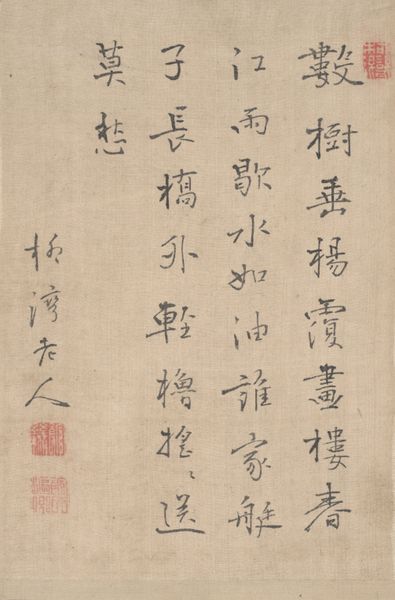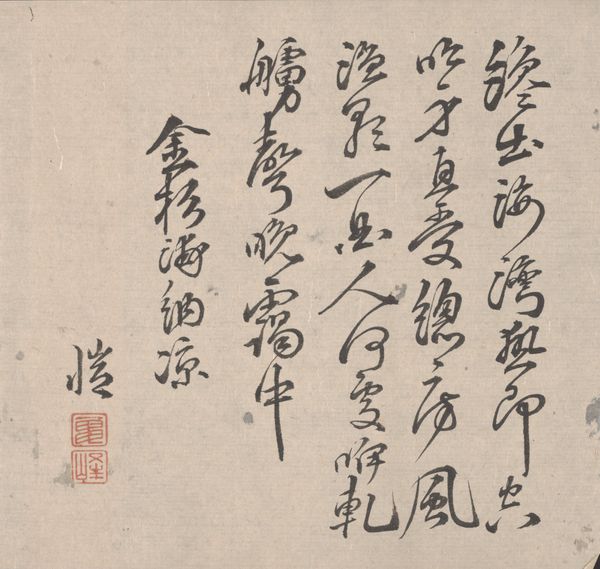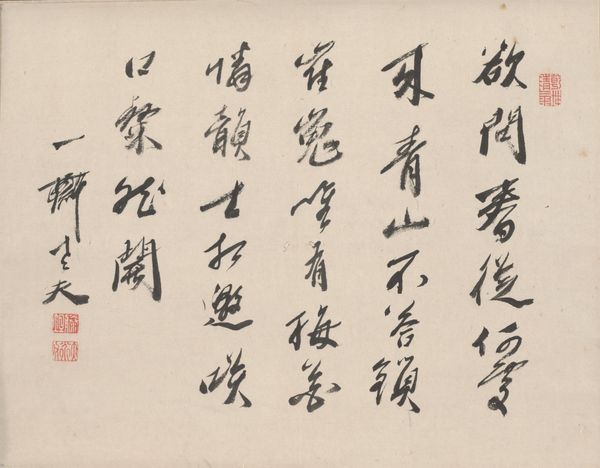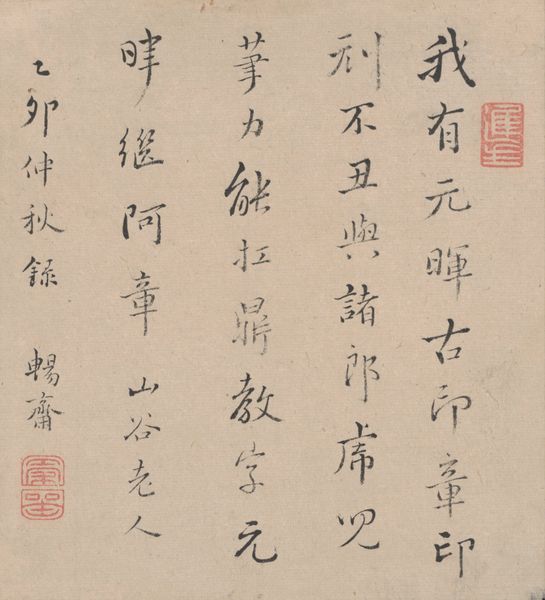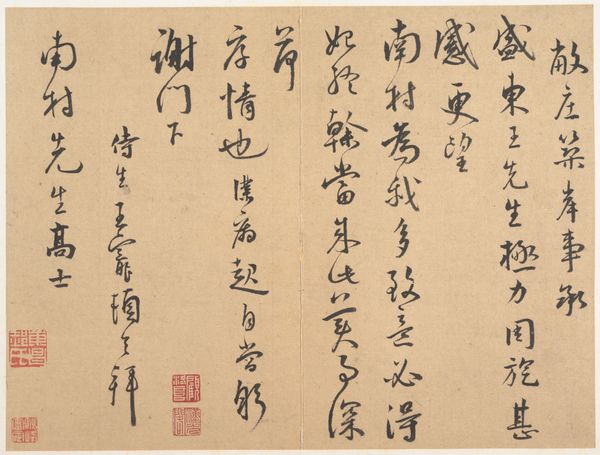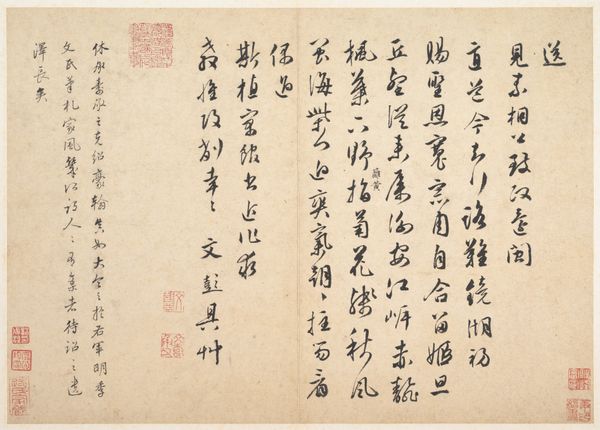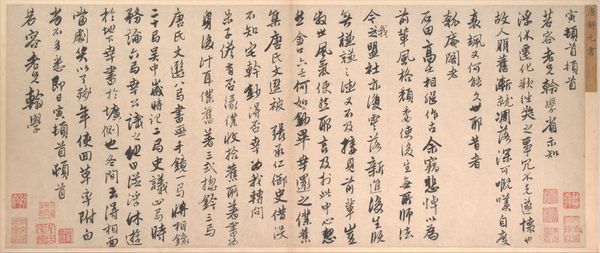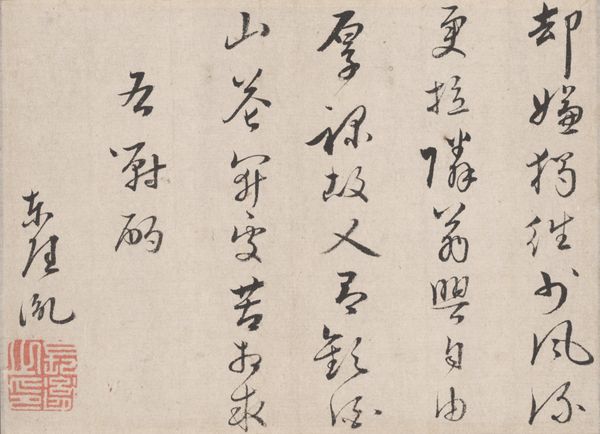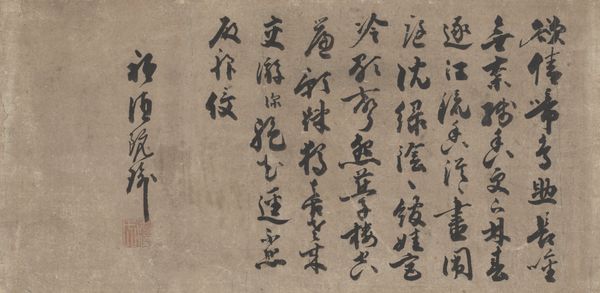
drawing, paper, ink-on-paper, ink
#
drawing
#
asian-art
#
japan
#
paper
#
ink-on-paper
#
personal sketchbook
#
ink
#
calligraphic
#
calligraphy
Dimensions: 10 11/16 × 12 1/8 in. (27.15 × 30.8 cm)
Copyright: Public Domain
Curator: Here we have Uno Genshō’s “Eight-Line Poem,” created around the late 18th century using ink on paper. Editor: It's incredible how potent simple ink can be. The starkness against the paper creates this contemplative mood. How do you see this work in terms of its cultural and historical significance, especially considering its medium? Curator: For me, understanding this piece means diving into the very materials and their production. What kind of paper was used? Where did the ink come from? These details are less about individual expression and more about the socio-economic context in which this calligraphy was created. Ink, paper, and the brushes aren’t neutral tools; their availability and cost shaped artistic creation. How do you think the seemingly simple act of writing this poem connects to broader economic and social systems? Editor: That’s a really interesting point. I hadn't considered how access to quality materials might influence artistic output, especially in 18th-century Japan. Was calligraphy, then, a reflection of societal structures and privilege? Curator: Precisely! By investigating the materiality and considering who had access to such materials and the training to use them, we can begin to unravel the social fabric that produced this poem. We aren't just appreciating beautiful writing; we are examining labor, materiality, and, in turn, a deeper sense of history. Editor: So it’s about more than just aesthetics; it's about understanding the social conditions that made this artwork possible. Thanks! Curator: Exactly. Now, we should consider researching and figuring out what the original audience thought about this specific kind of ink!
Comments
No comments
Be the first to comment and join the conversation on the ultimate creative platform.
